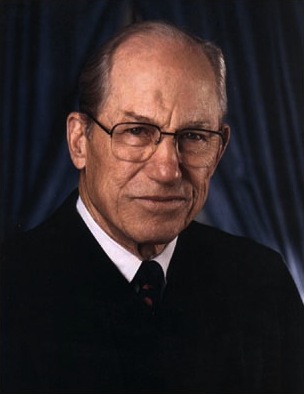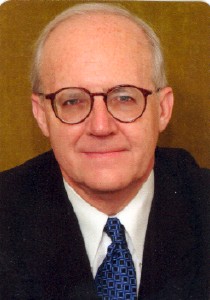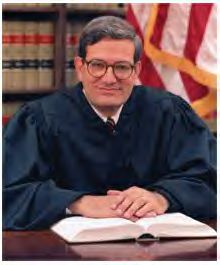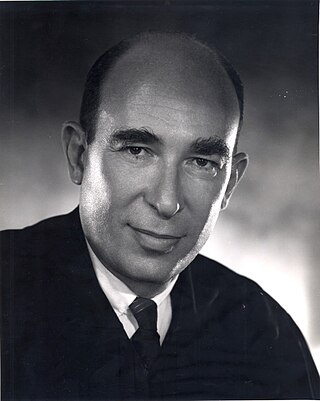Biography
Born on December 19, 1953, the grandson of Slovak immigrants, Dzurilla grew up in Carteret, New Jersey. His family moved to Holly Hill, Florida, and he graduated from Mainland High School in Daytona Beach. He received his B.A. degree from the University of Louisiana at Lafayette in 1978, and his J.D. from Tulane Law School in 1981.
After graduation, he clerked for Judge Albert Tate of the United States Court of Appeals for the Fifth Circuit from 1981 to 1982 and then for Justice Byron White of the U.S. Supreme Court from 1982 to 1983. [1]
After completing his clerkship, Dzurilla joined the New Orleans firm of Gordon Arata McCollam & Duplantis, where he stayed for 15 years. He worked with his former co-clerk Patricia A. Dean on the defense of a First Amendment challenge to the constitutionality of seven federal, state, and local school aid programs, which culminated in Mitchell v. Helms, a U.S. Supreme Court decision overruling previous authority. [2] Dzurilla also helped obtain a unanimous Louisiana Supreme Court decision finding Louisiana's forum non conveniens statute contrary to the Supremacy Clause of the U.S. Constitution, [3] an appellate decision striking down Louisiana's Any Willing Provider statute as preempted by ERISA, [4] and a U.S. Fifth Circuit opinion overturning a criminal mail fraud conviction on double jeopardy grounds. [5]
In 1990, on behalf of the Federal Bar Association's Democracy Development Initiative, Dzurilla spent two months in Moscow, Russia as an advisor to the Russian Constitutional Commission, which was preparing the first non-socialist constitution of the Russian Federation. [6] The commission was chaired by Russian president Boris Yeltsin, and Dzurilla worked closely with Oleg Rumyantsev, the chairman of the commission's working group. The commission's work led to the enactment of the 1993 Constitution of Russia. However, as a result of the 1993 Russian constitutional crisis, the final version differed from the commission's draft by substantially increasing the powers of the president. [7]
In 1998, Dzurilla accepted a Fulbright Scholarship to teach law at the Comenius University in Bratislava, Slovakia. [8] While in Slovakia, he joined White & Case and stayed with that firm for four years, handling several important deals in the Slovak Republic's transition from a Soviet satellite to a full member of the European Union. Mr. Dzurilla worked with Slovak Minister of Finance Brigita Schmögnerová on the privatization of the Slovak Savings Bank (Slovenská sporiteľňa) and the General Credit Bank (VÚB), the two largest Slovak banks. [9] He represented Electricite de France in its acquisition of the Central Slovak Electric Company, and Allianz in its purchase of the Slovak Insurance Company. He advised the Slovak government in the sale of 49% of the shares of the Transpetrol AS oil pipeline company to the Russian company Yukos, then headed by Mikhail Khodorkovsky. [10]
In 2004, Dzurilla rejoined his former co-clerk Stuart H. Singer, who offered him a position with Boies Schiller & Flexner in Fort Lauderdale. Since returning to the United States, Dzurilla has focused on complex litigation and arbitration. He has represented clients such as NASCAR and Florida Power & Light, and he is involved in class-action litigation against Quixtar.
Dzurilla married Daria Mariani in 2000 in Slovakia. They have two children, William (Billy) and Pavel (Paul).

Byron Raymond "Whizzer" White was an American lawyer, jurist, and professional football player who served as an associate justice of the Supreme Court of the United States from 1962 until 1993. By his retirement, he was its only sitting Democrat and the last-living member of the progressive Warren Court.
Bowers v. Hardwick, 478 U.S. 186 (1986), was a landmark decision of the U.S. Supreme Court that upheld, in a 5–4 ruling, the constitutionality of a Georgia sodomy law criminalizing oral and anal sex in private between consenting adults, in this case with respect to homosexual sodomy, though the law did not differentiate between homosexual and heterosexual sodomy. It was overturned in Lawrence v. Texas (2003), though the statute had already been struck down by the Georgia Supreme Court in 1998.

The Supreme Court of California is the highest and final court of appeals in the courts of the U.S. state of California. It is headquartered in San Francisco at the Earl Warren Building, but it regularly holds sessions in Los Angeles and Sacramento. Its decisions are binding on all other California state courts. Since 1850, the court has issued many influential decisions in a variety of areas including torts, property, civil and constitutional rights, and criminal law.
Branzburg v. Hayes, 408 U.S. 665 (1972), was a landmark decision of the US Supreme Court invalidating the use of the First Amendment as a defense for reporters summoned to testify before a grand jury. The case was argued February 23, 1972, and decided June 29 of the same year. The reporters lost their case by a vote of 5–4. This case is cited for the rule that in federal courts, a reporter may not generally avoid testifying in a criminal grand jury, and is one of a limited number of cases in which the U.S. Supreme Court has considered the use of reporters' privilege.

James Harvie Wilkinson III is an American jurist who serves as a United States circuit judge on the United States Court of Appeals for the Fourth Circuit. His name has been raised at several junctures in the past as a possible nominee to the United States Supreme Court.

William Holcombe Pryor Jr. is an American lawyer who has served as the chief judge of the United States Court of Appeals for the Eleventh Circuit since 2020. He was appointed as a United States circuit judge of the court by President George W. Bush in 2004. He is a former commissioner of the United States Sentencing Commission. Previously, he was the attorney general of Alabama, from 1997 to 2004.

Danny Julian Boggs is an American lawyer and a senior United States circuit judge of the United States Court of Appeals for the Sixth Circuit. He was appointed to the court in 1986 and served as its chief judge from September 2003 to August 2009. Boggs was on the short list of President George W. Bush's candidates for the U.S. Supreme Court.

David Bryan Sentelle is a Senior United States circuit judge of the United States Court of Appeals for the District of Columbia Circuit. He previously was a U.S. district judge on the United States District Court for the Western District of North Carolina from 1985 to 1987.

José Alberto Cabranes is an American lawyer who serves as a senior United States circuit judge of the United States Court of Appeals for the Second Circuit and a former presiding judge of the United States Foreign Intelligence Surveillance Court of Review ("FISCR"). Formerly a practicing lawyer, government official, and law teacher, he was the first Puerto Rican appointed to a federal judgeship in the continental United States (1979).

Jon Ormond Newman is a senior United States circuit judge of the United States Court of Appeals for the Second Circuit.

Stephen Roy Reinhardt was a United States circuit judge of the United States Court of Appeals for the Ninth Circuit, with chambers in Los Angeles, California. He was the last federal appeals court judge in active service to have been appointed to his position by President Jimmy Carter.
Robert David Sack is a senior United States circuit judge of the United States Court of Appeals for the Second Circuit.

Jerry Edwin Smith is an American attorney and jurist serving as a United States circuit judge of the United States Court of Appeals for the Fifth Circuit.
Patricia A. Dean was an American attorney and a partner with the Arnold & Porter law firm in Washington, D.C.. She was a deputy clerk of the U.S. Supreme Court from 1978 to 1981, the first woman to serve in that position, and then served as a law clerk for Justice Byron White of the United States Supreme Court from 1982 to 1983.
William Eugene Davis, known as W. Eugene Davis, is a senior United States circuit judge of the United States Court of Appeals for the Fifth Circuit. His chambers are in New Orleans, Louisiana.

Wilfred Feinberg was a United States circuit judge of the United States Court of Appeals for the Second Circuit and previously was a United States District Judge of the United States District Court for the Southern District of New York.

Alvin Benjamin Rubin was a United States circuit judge of the United States Court of Appeals for the Fifth Circuit and previously a United States district judge of the United States District Court for the Eastern District of Louisiana.

Stephen Andrew Higginson is a circuit judge of the United States Court of Appeals for the Fifth Circuit and the Presiding Judge of the United States Foreign Intelligence Surveillance Court of Review.
Louisiana Power & Light Co. v. City of Thibodaux, 360 U.S. 25 (1959), was a case in which the Supreme Court created a new doctrine of abstention.

Richard Barry Sobol was an American lawyer who specialized in civil rights law. He worked primarily on desegregation cases in Louisiana.













